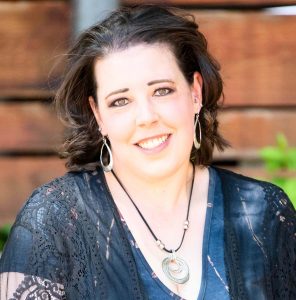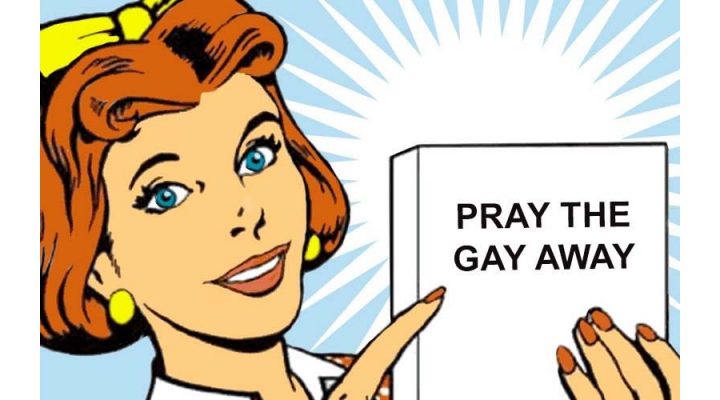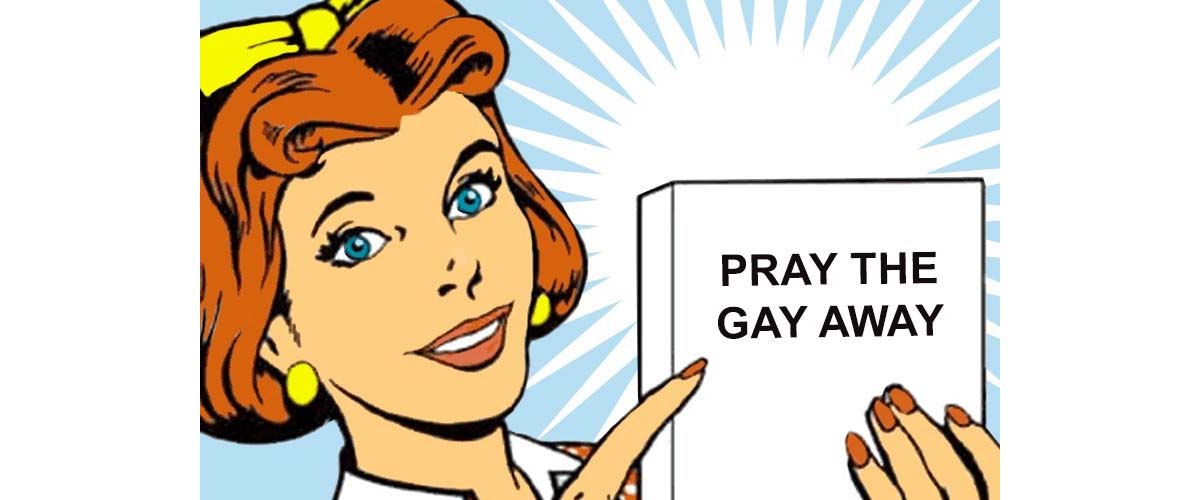In 2021, the documentary Pray Away released on Netflix, detailing the history and harms of conversion therapy. It chronicles the rise and fall of Exodus International, whose primary mission was to make people who were “struggling with homosexuality” straight.
During its height, Exodus reportedly had more than 400 local groups in 17 countries. But after 30-plus years of “ministry,” Exodus closed its doors in 2013, admitting its attempts at changing people didn’t work and, in fact, caused a great deal of harm.

Amber Wylde
Even after Exodus closed, conversion therapy continued and is still very much alive in America. In fact, conversion therapy is still legal for minors in 30 states. The 20 states that do have laws banning conversion therapy only go so far as to restrict licensed mental health practitioners from using this harmful approach on minors. The ban does not restrict the practice among religious providers, which is where the majority of conversion therapy takes place.
In the film’s opening, Pray Away describes conversion therapy as “the attempt to change a person’s sexual orientation or gender identity by a religious leader, licensed counselor or in peer support groups.”
However, I would take that definition a step further. I would argue that conversion therapy doesn’t just exist behind the closed doors of programs like Exodus and Living Hope in Arlington, Texas. Rather, conversion therapy exists in people’s homes, around dinner tables and in pulpits. I never attended a formal conversion therapy program, yet I definitely did not escape the harm of these toxic teachings.
“Conversion therapy isn’t just a program, it’s a system of belief.”
Conversion therapy isn’t just a program, it’s a system of belief — a theology professing that being gay is so utterly abhorrent and sinful in the eyes of God that one must suppress who they are, convert (change or fix) their sexual orientation and/or gender identity, and become straight/cis in order to become acceptable in the eyes of God, and therefore acceptable in the eyes of their fellow Christian family, friends and peers.
Through pressure toward this unattainable goal, LGBTQ people who are subjected to conversion therapy (which in some instances goes as far as including shock therapy) are being programmed to hate themselves and brainwashed into believing they must change in order to be loved by God and escape eternal torment in hell. I experienced all this.
The documentary features Julie Rodgers, Yvette Cantu and John Paulk, all of whom Exodus put on a pedestal as spokespeople for the movement — success stories proving it was possible to change. Grappling with an incredible amount of shame and the desire to be accepted by their community, they did what was expected of them. They followed the rules, they shared their stories of supposed conversion, and they advocated for others to do the same. The pressure put on them to conform worked in Exodus’ favor, providing “evidence” that not only were straight people telling gay people they needed to change, but people who previously identified as gay (or “same-sex attracted” — the preferred term in lieu of claiming an ingrained orientation) were telling them it was possible.
However, the former leaders featured in this film admit ex-gay therapy didn’t truly help anyone become “ex-gay.” It was merely successful at behavior modification (shame and shunning have a way of doing that), but it was not at all successful in actually “fixing” or “converting” people from gay to straight. The feelings, desires and attractions remained — the people simply continued to ignore, suppress and deny them.
This theory of being “fixed” also does not account for people who are bisexual, like Yvette Cantu. At the time she claimed she was a lesbian who became straight, but now she acknowledges she is attracted to both sexes, although she has been married to a man for many years.
The effects of this movement have done extreme harm to the LGBTQ community, especially those from conservative Christian or evangelical backgrounds. The film states that more than 700,000 people have gone through some form of conversion therapy in the United States alone. While that tally may reflect the number of actual participants in reparative therapy programs, I believe the conversion therapy movement’s reach and impact on LGBTQ people, including people like me, is far greater than that, likely in the millions.
“There are many survivors, but not all survived.”
There are many survivors, but not all survived. A national survey found LGBTQ youth who experienced conversion therapy were more than twice as likely to attempt suicide. This practice is psychologically damaging and induces such great amounts of self-hatred and shame that intensive work and therapy are required to undo the mental programming. For some, undoing that programming is almost impossible.
With more than 20 years of study on the topic of shame, researcher and storyteller Brené Brown defines shame as “the intensely painful feeling or experience of believing we are flawed and therefore unworthy of acceptance and belonging.”
With that definition in mind, I began to realize shame had been the root cause of almost every negative thing I had struggled with in my life. I felt shame when I thought about my hair-pulling disorder and how self-conscious it made me feel about my appearance.
I felt shame when thinking about being depressed or having anxiety and needing to go to therapy. I’ve become increasingly aware that shame played a much bigger role in my pre-coming-out life than I ever would have liked. In a way, coming out was an intentional decision to recognize shame for the toxic, suffocating, manipulative tool that it is and to walk away from it.
Shame does not have a role in my life now like it did prior to my coming out. So much of that shame stemmed from the church. Judgment from people acting in the name of God planted my seeds of self-hatred and shame.
Amber Wylde is a national speaker, community healer and the author of three books. Her newest book, Out of Focus: My Story of Sexuality, Shame and Toxic Evangelicalism, released this month. As a gay woman living with the invisible disability of both Lyme disease and rheumatoid arthritis, Amber specializes in bringing messages of diversity, hope and self-acceptance to those who have been pushed to the margins. She is host of the Unashamed Love Collective — a safe haven for LGBTQ people and allies that fosters supportive community. She also leads Cultivating Community Retreats — small, intimate group gatherings that build lasting relationships with like-minded people. Learn more at Patreon.com/AmberCantornaWylde, on social media @AmberCantornaWylde or online at AmberCantornaWylde.com.
This column is excerpted from Out of Focus: My Story of Sexuality, Shame and Toxic Evangelicalism @2023 used by permission of Westminster John Knox Press.
Related articles:
Review of research underscores harms of conversion therapy and importance of family affirmation
Al Mohler’s curious defense of conversion therapy | Analysis by Alan Bean
Panelists make the Christian case against conversion therapy: It harms people
When a teenager gets kicked to the curb by Christian parents | Opinion by Dan McGee and Linda Francis Cross


